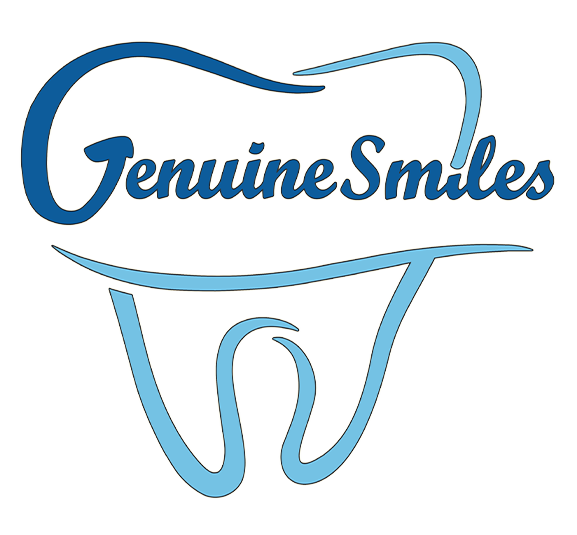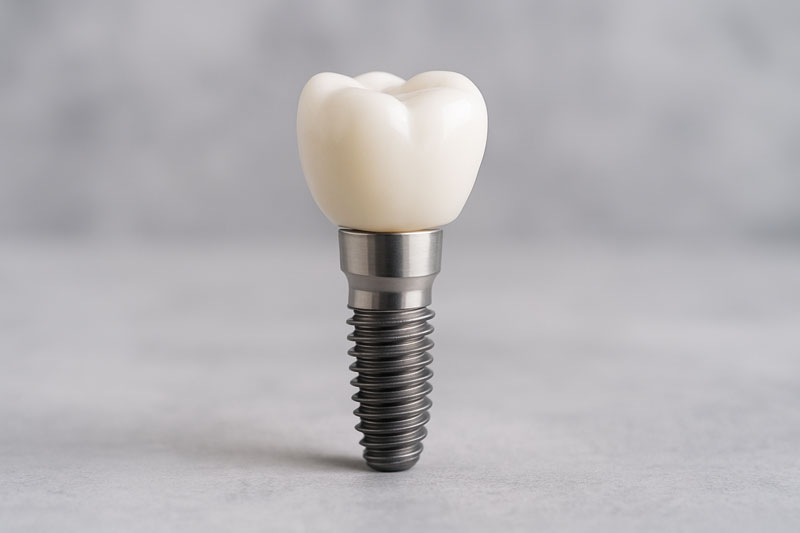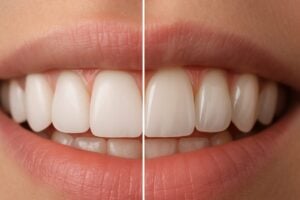Understanding the Formation of a Hole in a Crown
A hole in a crown on a tooth is a dental issue that occurs when there is a visible gap or damage in the crown material. This common occurrence can lead to various problems if not addressed promptly, including discomfort and potential tooth decay. Dental crowns are caps placed over a tooth to restore its shape, size, and strength, and they are crucial for protecting a weakened tooth. When a crown becomes compromised, it can expose the underlying tooth to harmful bacteria, leading to further complications. It is essential for dental patients to recognize the indications of a compromised crown to address the issue quickly. By understanding how these holes form, individuals can take suitable measures to prevent damage and maintain oral health.
Crowns play a pivotal role in maintaining the integrity and appearance of your teeth. However, they are not immune to wear and tear. Typically made from materials like porcelain, ceramic, or metal, these crowns provide esthetic and functional benefits. Over time, factors such as daily use, diet, and oral hygiene habits can affect the crown’s condition. As a result, it is crucial for dental patients to remain vigilant and proactive in managing their dental crowns. Early detection and timely intervention can make a significant difference in maintaining the longevity and effectiveness of a crown, ensuring your smile stays healthy and beautiful.
Identifying Common Causes of Crown Damage
Several factors contribute to the damage that leads to a hole in a crown on a tooth. Poor oral hygiene is a significant cause, as it can lead to the buildup of plaque and tartar, compromising both the underlying tooth and the crown itself. Additionally, aggressive brushing and the use of a hard-bristled toothbrush can gradually wear down crown material. Another cause of damage is the consumption of hard or sticky foods, which can exert excessive force on the crown and eventually lead to cracks or holes. Understanding these common culprits enables dental patients to make informed decisions about their oral care routine.
Bruxism, a condition characterized by teeth grinding, is another contributor to crown damage. The persistent pressure exerted during grinding can cause undue stress on crowns, leading to significant wear. Moreover, sudden trauma or injury to the mouth can also result in crown damage. It is vital for dental patients to seek regular dental checkups, allowing professionals to detect and address any early signs of bruxism or damage. By adopting preventative measures and addressing potential issues head-on, maintaining healthy dental crowns becomes more achievable.
Recognizing Symptoms and Warning Signs of Damage
Detecting a hole in a crown on a tooth at an early stage can prevent further complications. Individuals may initially notice mild discomfort or increased sensitivity, especially when consuming hot or cold foods. This may be due to the exposure of the tooth underneath the crown, which is more susceptible to temperature changes and pressure. Another symptom might include noticing rough edges on the crown. This occurrence indicates material deterioration, warranting professional evaluation. As holes become more pronounced, dental patients might experience pain or swelling around the affected tooth, a sign that bacteria could be causing infection.
Visual inspection can also reveal signs of damage. Discoloration or visible gaps on the crown’s surface suggest compromised integrity. Regular dental visits can aid in identifying these issues before they escalate. Dental professionals use specialized tools and techniques to assess crown conditions accurately, offering solutions tailored to restore dental health. It is essential for dental patients to inform their dentist if they experience any unusual symptoms, allowing for prompt evaluation and treatment. Through awareness and timely intervention, dental patients can effectively manage and mitigate the effects of crown deterioration.
Effective Approaches to Repair and Treatment
When facing a hole in a crown, several treatment options can be explored based on the extent of the damage. In cases of minor wear, a dentist might recommend using dental filling materials to patch the crown temporarily. This solution offers immediate relief from discomfort and helps protect the tooth until a more permanent solution is feasible. For more severe damage, replacing the crown may be necessary. Modern advancements in dental technology have facilitated the creation of high-quality, durable crowns that provide both functional and aesthetic benefits to dental patients.
The treatment process involves removing the damaged crown and taking an impression of the affected tooth. This ensures a custom-fit crown that complements the patient’s bite and appearance. Meanwhile, a temporary crown protects the tooth until the new one is ready for placement. The entire process emphasizes precision, ensuring dental patients receive the best possible outcome. Here at Genuine Smiles PA, we are committed to finding the right solution that caters to individual needs and restores oral health effectively and efficiently.
Proactive Measures to Prevent Future Crown Issues
Preventative care plays a critical role in maintaining the integrity of dental crowns and avoiding future issues. Regular dental checkups allow professionals to monitor crown health and address potential problems promptly. Emphasizing a vigilant oral hygiene routine is also vital. Dental patients are encouraged to brush and floss daily, using gentle techniques to maintain cleanliness without damaging crowns. Additionally, using a soft-bristled toothbrush and non-abrasive toothpaste can extend the lifespan of dental restorations. Avoiding extremely hard or sticky foods can further mitigate the risk of crown damage.
If you suffer from bruxism, wearing a night guard can help alleviate undue stress on dental crowns, protecting them from the damaging effects of grinding. Dental patients are also advised to wear protective gear during activities that pose a risk of dental injury. By incorporating these practices into their daily routines, dental patients can actively contribute to prolonging the life of their crowns and maintaining a healthy smile. Meanwhile, our team at Genuine Smiles PA is here to provide expert guidance and support for all your dental care needs.
Are you ready to restore your smile at our skilled and trusted dental practice? Don’t wait to get the smile of your dreams with us. Get in contact with our doctor, Dr. Elfar, and our exceptional team at our practice to schedule an appointment today!






